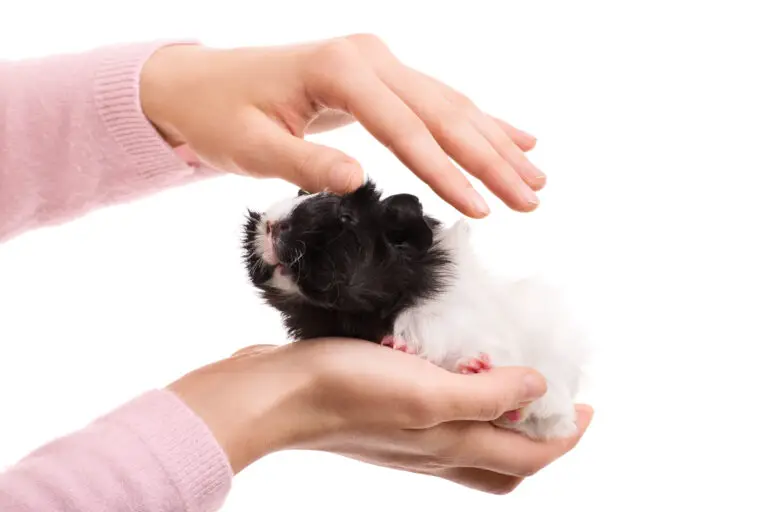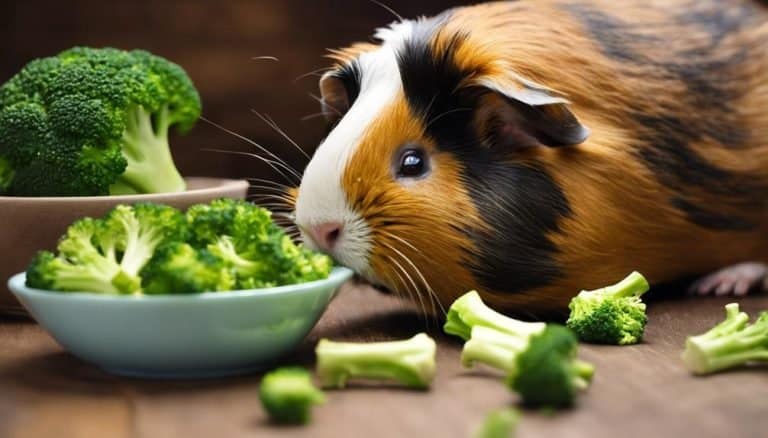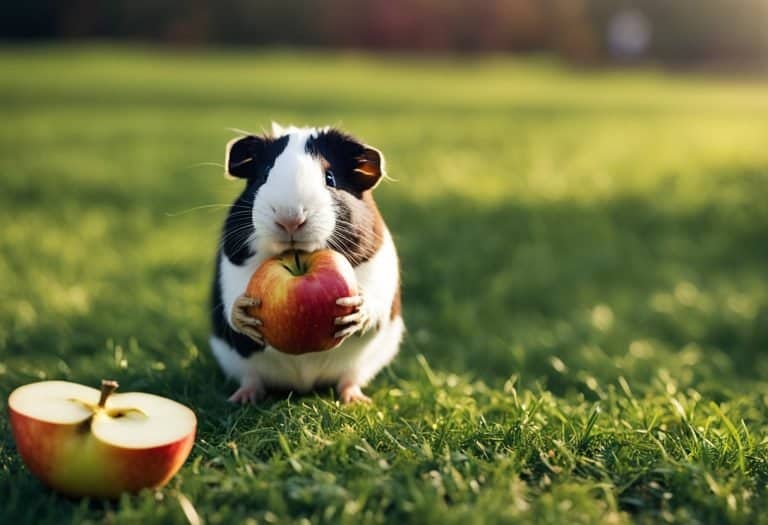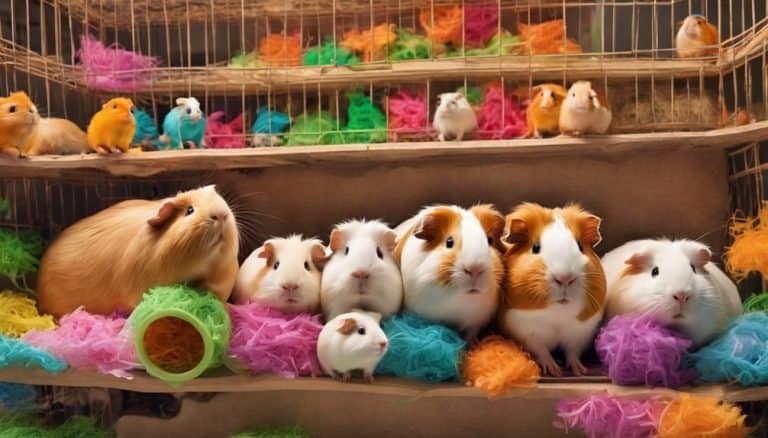Do Guinea Pigs Really Need Salt Blocks? Unveiling the Truth Behind This Common Pet Myth
Guinea pigs have long been cherished as adorable and low-maintenance pets, with their gentle nature and soft fur captivating pet owners worldwide. As responsible caretakers, it is crucial to understand the dietary needs of these furry companions in order to provide them with a healthy and fulfilling lifestyle.
One topic that frequently arises in discussions about guinea pig nutrition is whether or not they require salt blocks. In this article, we will delve into the truth behind this common pet myth and uncover the real needs of our beloved guinea pigs when it comes to sodium intake.
So, if you’ve ever wondered about the necessity of salt blocks for guinea pigs, prepare yourself for an enlightening journey through their dietary requirements!
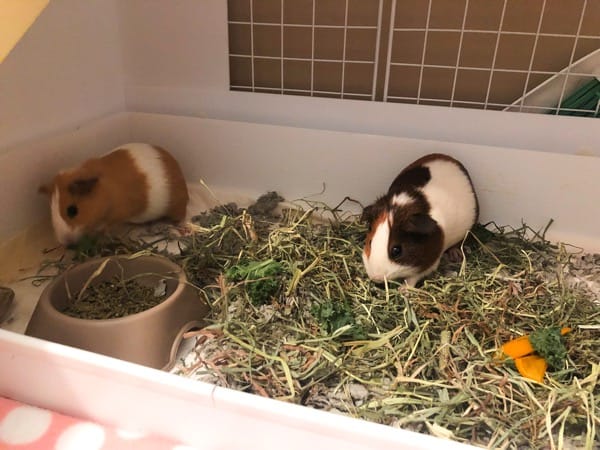
The Science Behind Guinea Pig Nutrition: Understanding Sodium Requirements
Sodium is an essential nutrient for guinea pigs, as it helps maintain proper fluid balance and nerve function in their bodies.
- Like humans and many other animals, guinea pigs require sodium to support various physiological processes.
- However, excessive sodium intake can be harmful to them, leading to health issues such as kidney problems and high blood pressure.
- While some pet owners believe that providing a salt block is necessary for meeting their guinea pig’s sodium needs, this is actually unnecessary in most cases.
A well-balanced diet provides sufficient sodium for guinea pigs without the need for additional supplementation:
- Fresh hay should make up the majority of a guinea pig’s diet since it contains adequate amounts of natural sodium.
- Vegetables like bell peppers, kale, and spinach also contribute small but significant amounts of dietary sodium.
- A commercial pelleted food formulated specifically for guinea pigs typically includes appropriate levels of essential nutrients including sodium.
By understanding the science behind guinea pig nutrition and recognizing that excess salt intake can be detrimental to their health, pet owners can ensure they are providing their furry friends with a balanced diet without the need for salt blocks.
Debunking the Myth: Do Guinea Pigs Really Need Salt Blocks?
Many pet owners believe that guinea pigs need salt blocks to fulfill their dietary needs, but this is actually a common misconception.
1. No Scientific Evidence: There is no scientific evidence to support the claim that guinea pigs require salt blocks for their health. In fact, excessive intake of salt can be harmful to these small animals and lead to health issues such as kidney problems.
2. Natural Diet: Guinea pigs obtain all the necessary nutrients from their natural diet, which mainly consists of hay, fresh vegetables, and specially formulated pellets. These foods already contain an appropriate amount of minerals, including sodium.
3. Balanced Diet is Key: Instead of relying on salt blocks, guinea pig owners should focus on providing a balanced diet rich in vitamin C and other essential nutrients. Regular access to clean water is also crucial for maintaining hydration.
In conclusion, salt blocks are not necessary for guinea pigs, and it’s important for pet owners to rely on established nutritional guidelines rather than fall prey to common myths about their furry companions’ dietary needs.
The Potential Dangers of Excessive Sodium Intake in Guinea Pigs
Sodium is a crucial mineral that plays a vital role in maintaining fluid balance and transmitting nerve impulses in the body. However, when it comes to guinea pigs, excessive sodium intake can have detrimental effects on their health.
- Kidney Problems: Guinea pigs are prone to developing kidney stones due to their unique anatomy and physiology. High levels of sodium can increase the risk of stone formation, leading to painful urinary obstruction or even kidney damage.
- Dehydration: Since guinea pigs have a limited ability to conserve water, excess sodium intake can result in increased thirst and dehydration. This can be especially problematic during hot weather when moisture loss is already heightened.
- Digestive Disturbances: Overconsumption of salt can upset the delicate balance of gut bacteria in guinea pigs, potentially causing digestive issues such as diarrhea or constipation.
To ensure your furry friend’s well-being, it is essential to monitor their sodium intake and provide them with a balanced diet that meets their specific nutritional needs without relying solely on salt blocks for supplementation.
Providing a Balanced Diet: Alternatives to Salt Blocks for Guinea Pigs
Alternatives to Salt Blocks for Guinea Pigs
Salt blocks have long been believed to be a necessary addition to a guinea pig’s diet, but the truth is they may not actually need it. There are other alternatives that can provide the essential minerals and nutrients without the potential risks of excessive salt intake.
- Fresh Vegetables: Guinea pigs thrive on a variety of fresh vegetables such as leafy greens, bell peppers, and cucumbers. These veggies not only offer hydration but also provide key vitamins like vitamin C.
- High-Quality Pellets: A balanced diet for guinea pigs should include pellets specifically formulated for their nutritional needs. Look for brands that contain natural ingredients and avoid additives or excessive amounts of salt.
- Natural Mineral Licks: Instead of using salt blocks, consider providing your guinea pig with natural mineral licks made from calcium carbonate or dolomite rock dust. These licks allow them to regulate their intake according to their individual needs.
By offering these alternatives, you can ensure your furry friend receives all the necessary nutrients without compromising their health by overloading on sodium through salt blocks.


